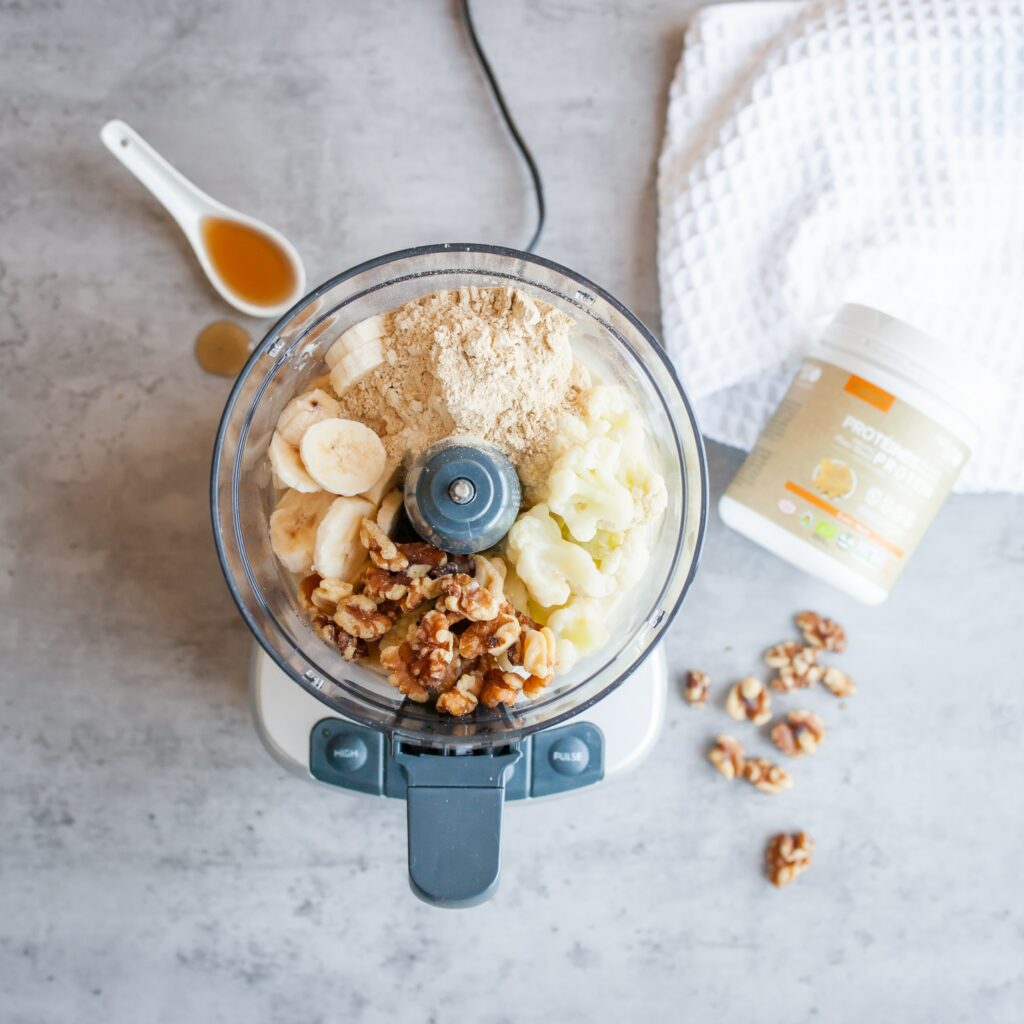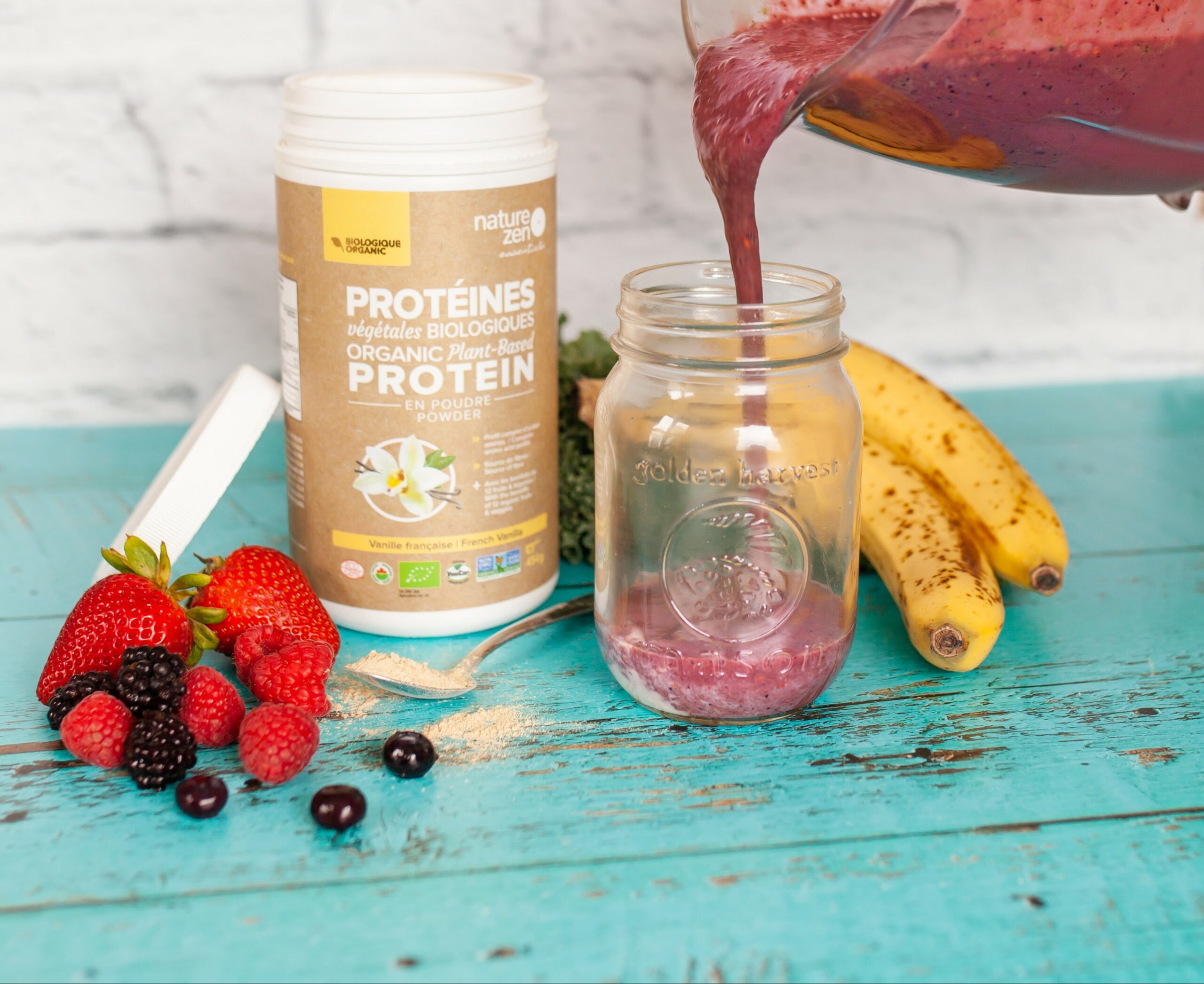The optimal timing of protein consumption in relation to workouts remains a topic of debate in the fitness community. Some advocate for pre-workout protein intake as the key to maximizing workout performance, while others believe that post-workout protein consumption is the ultimate muscle builder. While protein is undoubtedly essential for fueling physical activity, it’s time to settle the dispute and put an end to the confusion.
So, which is better: a protein shake before or after a workout? The answer is not so straightforward and depends on individual needs, lifestyles, and goals. According to India McPeak, a certified strength and conditioning specialist and former competitive gymnast, it’s crucial to prioritize meeting daily protein requirements from various sources and supplement with protein shakes whenever it aligns with one’s schedule and preferences.
You don’t have to drink a full shake to consume protein. “The important thing is to provide your body with the appropriate and necessary nutrients,” explains Jordan Hill, a registered dietitian at Top Nutrition Coaching. “Carbohydrates and protein are the two significant players, and it’s crucial to consume something both before and after exercising.”
Multiple studies show that although protein is vital for optimal athletic performance and muscle growth, the timing of protein intake is less crucial than daily consumption. Nevertheless, there are advantages to consuming a protein shake before or after exercising.
So, when should I take my protein shake?
Deciding whether to consume a protein shake before or after exercising ultimately depends on individual goals. While protein shakes are a convenient method to increase daily protein intake, the timing of consumption is not as crucial as commonly believed. According to McPeak, the critical factor is to consume enough protein throughout the day and ensure that pre- and post-workout meals are no more than four to six hours apart to maximize muscle building.

Hill suggests that consuming a pre-workout snack can help activate muscles, reduce mid-workout discomfort and muscle breakdown, and minimize soreness after exercising. Eating a post-workout snack can help repair muscle breakdown, reduce inflammation, and provide a boost of energy when feeling exhausted. However, for less intense workouts like yoga, walking, and bodyweight training, a standard daily diet with three meals and a few snacks is likely sufficient.
For high-intensity workouts like long-distance running, CrossFit, and HIIT classes, Hill advises consuming both protein and carbohydrates 30 to 45 minutes before and after exercising. Research shows that the effects of pre- and post-workout protein intake are similar in increasing muscle size, boosting strength, and improving overall body composition. Therefore, there is no right or wrong answer, and it ultimately depends on individual preferences and requirements.
Benefits of protein shake before a workout
According to Hill, for a protein boost before your workout, aim for 15 to 20 grams of protein (and 25 to 30 grams of carbs) around 30 to 45 minutes before starting your workout.
- Enhance your workout performance. Your muscles, brain, and body require protein to function and provide you with energy, says Hill. If you don’t have enough protein (and carbs), you won’t have an excellent workout. Additionally, a pre-workout protein intake is essential for maximizing physical performance and getting the most out of your exercise session.
- Reduce muscle breakdown. When you work out, you are technically breaking down muscle fibers, which may cause soreness the following day. To help repair muscle cells, consume a protein and carb combination snack before exercising. Protein contains essential amino acids, which help fast-track protein absorption in the body, as research has shown.
- Feel full. If you haven’t eaten in three to four hours or don’t have time for a full meal before your workout, a protein shake can help curb hunger and make you feel full, according to McPeak. Protein powder is an excellent option if you have less than an hour before your workout, as it is absorbed rapidly.
- Improve muscle adaptation. According to Hill, fueling up before your workout will boost your muscles’ ability to adapt to the training efforts. In other words, protein primes your muscles to perform better. Protein supports muscle endurance, keeping you strong, according to research, which can be beneficial for an extra tough or lengthy workout.
Benefits of protein shake after a workout
To maximize muscle repair and recovery, Hill suggests consuming protein within 30 minutes after your workout (known as the anabolic window). However, don’t worry if you miss this window because research shows that it can still be effective even if consumed a bit later.
- Repair muscle breakdown. Protein helps minimize muscle breakdown during your workout and speeds up the recovery process. “Since muscle fibers break down while we work out, consuming protein after a workout can help stop this process,” explains Hill.
- Build lean muscle. While post-workout protein is not the only factor for muscle gains, the essential amino acids in protein are significant building blocks that can help maximize and grow lean muscle, according to a 2019 study. Remember, to get the most out of it, strive to consume protein within 30 minutes to an hour after your workout.
- Boost energy. Sometimes, after an intense workout, the thought of eating a full meal is unappetizing. However, research suggests that a protein shake can replenish any lost fluids and boost energy if you feel depleted or nauseous. A scoop of protein is also easier to digest if you lack an appetite.
- Reduce inflammation. Intense workouts can cause microscopic tears in your muscle fibers, increasing inflammation, which leads to muscle soreness, according to the American College of Sports Medicine. However, research suggests that high levels of protein can help minimize this breakdown and mitigate the inflammatory response, making you feel less sore.
Meeting daily protein intake
To meet your daily protein intake, the timing of a protein shake is not as important as understanding your needs. Hill recommends women aim for 1 to 1.2 grams of protein per pound of body weight per day. For example, a 140-pound woman should aim for 140-166 grams of protein. If you are highly active and engage in power training, heavy lifting, CrossFit, or high-intensity interval training (HIIT), you should aim for the higher end of the range. For more endurance-focused individuals, protein intake can be around 0.8 to 1 gram of protein per pound of body weight, according to Hill. Pro tip: Try to consume 20 to 40 grams of protein at each meal across three to five meals a day.
While daily protein intake is critical, carbohydrates should not be ignored. Hill suggests consuming a three-to-one ratio of carbohydrates to protein, and for those trying to lose weight, a two-to-one ratio is recommended.
Choosing protein source

To ensure that you are getting enough protein, it is important to consume a variety of foods with both complete and incomplete proteins that have adequate amino acid profiles. According to Hill, there are 20 amino acids, nine of which are essential and must be obtained from food. She recommends lean meats, dairy, and fish as complete protein sources, as they contain all nine essential amino acids. Incomplete protein sources like beans, nut butter, vegetables, and whole grains are also good to incorporate into your diet. For healthy snack options, Hill suggests toast with nut butter, a turkey and cheese roll-up, or high-protein cereal with skim or 1% milk.
If you are looking for a powder to supplement your protein intake, Hill advises going for animal-based sources like whey or dairy protein, as they have distinct muscle-building characteristics and are anti-inflammatory. On the other hand, if you prefer vegan alternatives, McPeak recommends pea, brown rice, or hemp protein. When it comes to specific brands, Hill suggests Optimum Nutrition, Muscle Milk, and Bodylogix for whey-based powder, while Evolve, Garden of Life, and Orgain are her go-to brands for vegan protein powder.



